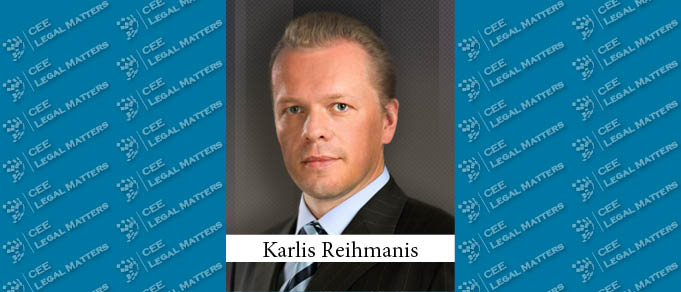The promise of a return to normal, considerable public debt, a controversial WWII compensation ruling, AML-linked blockages, and a potential real estate bubble are the main discussion topics among lawyers in Latvia according to Reihmanis & Partners Partner Karlis Reihmanis.
"This autumn, the general parliamentary elections in the country will take place, and this starts to be the main talk when it comes to politics in Latvia," Reihmanis begins. He says that the government has its hands full with combating the pandemic, still, but reports that March might see some of the governmental restrictions being lifted with the potential for this to “return things to normal life once again.”
“The government invested a lot of money in supporting the most heavily-impacted industries by handing out low-interest loans,” Reihmanis says. “Because these were loans, an increase in state debt has occurred and there is a lot of debate now about if this will impact the economy in a significant way, in the long term, even with the state budget still being healthy as tax revenue exceeded expectations,” he reports.
“A political decision which is worthy of note is the one made by the parliament in February, to award EUR 40 million in compensations to the Jewish community due to what happened during WWII,” Reihmanis says. “It has proven to be quite a controversial decision with all the political players being divided on it, as well as the overall society. There are those who view this as unnecessary because of the fact that the atrocities happened without any connection to the Latvian state - it was all the doing of the Nazi Regime,” he reports.
Legislation-wise, there is little of note to report on in terms of changes, Reihmanis says. “For quite a few years now, the main topic legislation-wise has been AML and all the procedures associated with it.” He reports that AML has been implemented in the Latvian legal framework with a heavy hand and that the system has been struggling ever since as to how to best accommodate for the change. “Many funds have been frozen by the Financial Intelligence Unit and the courts – there have been recent legal improvements made to craft a more smooth environment, but it still remains a contentious topic,” Reihmanis says.
As a last thought, Reihmanis points to some fearing a potential real estate bubble, but that it’s all “speculation at this point. Real estate has been performing admirably, with a lot of office buildings being constructed recently.”
